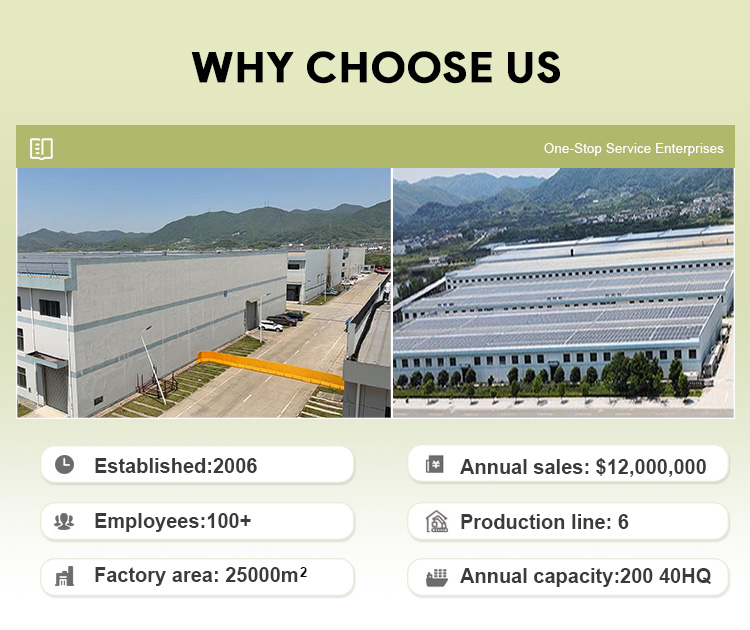To fully appreciate the benefits of compressed sofas, it’s important to first understand the fundamental differences between traditional sofa packaging and modern vacuum-compression methods.
Conventional sofas are typically shipped fully assembled or semi-assembled in large, rigid cartons or plastic wraps. These packages require substantial space and often include foam inserts or protective padding to prevent damage during transit. The fixed size and shape result in inefficient use of container volume and warehouse space, leading to higher shipping and storage costs.
In contrast, compressed sofas are designed for space efficiency. They feature modular, foldable components and are made with flexible, high-resilience materials. These sofas are vacuum-sealed and tightly compressed into compact packages—often reducing volume by up to 85–90%. This allows more units to be shipped or stored within the same space, significantly improving logistics efficiency.
| Feature | Traditional Packaging | Compressed Packaging |
|---|---|---|
| Packaging Size | Large, rigid boxes or wraps | Compact, vacuum-sealed packs |
| Volume Reduction | Minimal to none | Up to 85–90% reduction |
| Shipping Requirements | Requires large trucks; lower shipping density | Fits smaller vehicles or more units per container |
| Logistics Handling | Labor-intensive due to bulk and weight | Lightweight; easier to handle and transport |
| Storage Space Required | High warehouse space demand | Up to 95% space savings |
| Assembly Requirement | Minimal; mostly pre-assembled | Requires user assembly after unpacking |
| Cost Impact | Higher due to inefficient shipping and storage | Lower thanks to packaging and freight efficiency |
| Environmental Footprint | Higher emissions and packaging waste | Reduced carbon footprint and material usage |
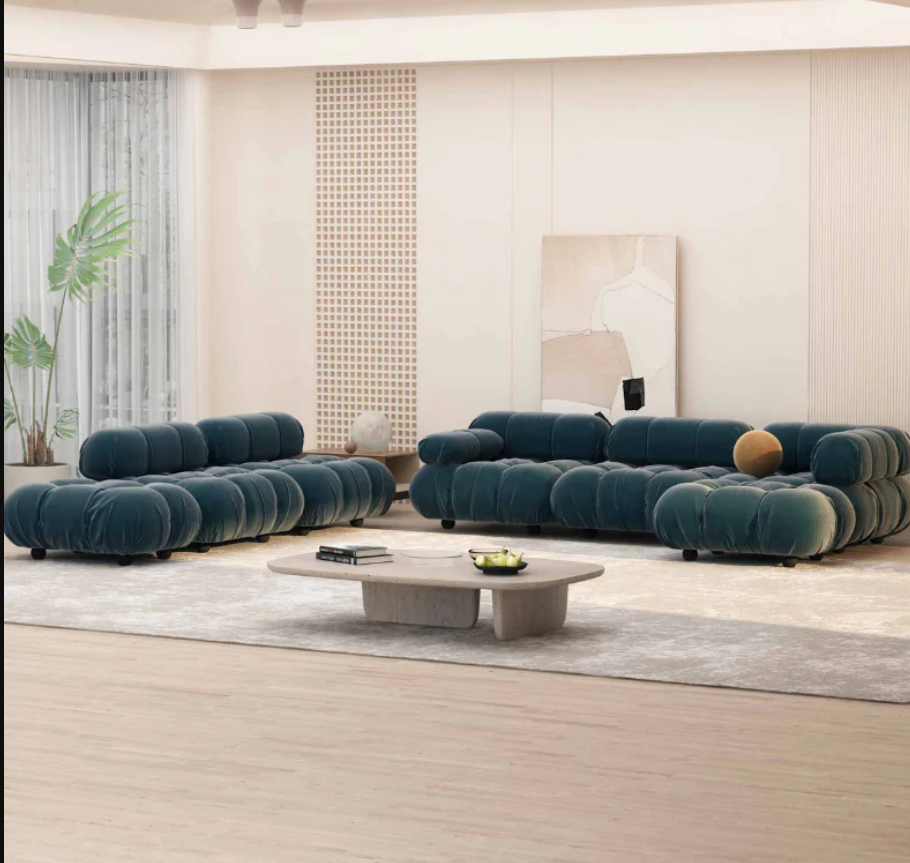
What gives compressed sofas a decisive advantage is not just the packaging, but a reimagined product design tailored for compression. Manufacturers like kingsenfoam.com leverage cutting-edge engineering to make this possible:
Sofas are no longer monolithic structures. Components such as cushions, backrests, and armrests are designed to detach or fold easily. This breakdown into smaller elements allows for more compact packaging without compromising design or comfort.
Traditional frames made of solid wood or metal are rigid and space-consuming. Compressed sofas use foldable or collapsible frame systems with flexible joints or hinges, enabling them to collapse into smaller dimensions for efficient packing.
High-resilience polyurethane foam and memory foam are used for their excellent recovery after compression. Stretchable, wrinkle-resistant fabric blends replace stiffer upholstery, preserving the sofa’s appearance after unpacking.
Together, these innovations make compressed sofas both space-saving and user-friendly, without sacrificing comfort or durability.
Perhaps the most significant advantage of compressed sofa packaging is its transformative effect on transportation and logistics:
A 40-foot container typically holds only 30–50 traditional sofas due to size inefficiencies.
The same container can accommodate 150–300 compressed sofas, thanks to compact, modular packing—representing up to 6x more units per shipment.
This improvement results in:
Lower freight costs (since shipping is volume-based)
Reduced carbon emissions due to fewer transport trips
Streamlined warehousing, with up to 70% less space needed
Easier delivery and setup, especially in tight urban environments
From container optimization to last-mile delivery, compressed sofa packaging provides a clear competitive edge—making it a core strategy for innovative factories like KingsenFoam.com and others leading the next wave of furniture logistics.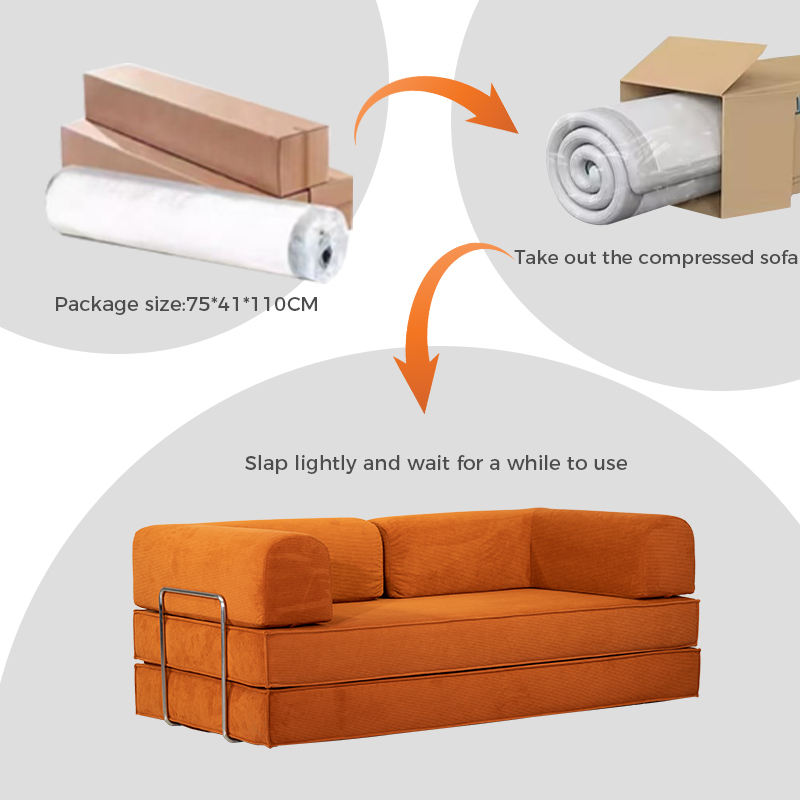
The advantages of compressed sofa packaging go well beyond logistics—they impact every stage of the value chain, from manufacturing to retail, ultimately delivering cost savings to consumers.
Compressed modular sofas are engineered as segmented components rather than bulky, solid frames. This approach optimizes material use in several ways:
Foldable frames made of engineered metal or composites require less raw material than traditional hardwood constructions.
Precision foam cutting significantly reduces scrap during cushion production.
Standardized modular designs streamline fabrication and reduce variability, improving production efficiency.
Compressed sofas drastically reduce shipping volume—often by up to 80%. With more units fitting per container or truckload, freight costs drop significantly, particularly for international shipments or last-mile delivery.
In compressed form, sofas occupy a fraction of their expanded size, enabling:
Higher warehouse density, reducing the need for expansive storage facilities
Lower inventory holding costs, freeing up capital and operational expenses
Faster turnover, allowing businesses to respond more quickly to market demand
These upstream efficiencies empower companies like kingsenfoam.com to offer modern, stylish sofas at more affordable prices compared to traditional manufacturers burdened with higher storage and transportation costs.
Ultimately, consumers benefit from lower prices without compromising comfort, quality, or style.
While some consumers still prefer fully assembled sofas, compressed models provide clear advantages in terms of convenience, maneuverability, and flexibility.
Compressed sofas generally require basic assembly upon delivery. However, most are designed for ease and speed:
Clear instructions and online video guides are typically provided
Minimal tools are needed—often included in the box
Assembly usually involves unfolding the frame, connecting modular pieces, and placing cushions
Traditional sofas often struggle to fit through tight staircases, small doorways, or elevators. Compressed sofas, in compact packages, eliminate these barriers and offer a hassle-free delivery experience.
Many compressed sofas offer customizable layouts—modules can be rearranged, expanded, or replaced. This appeals especially to urban and younger consumers who value versatility and space-saving design.
In summary, while compressed sofas may require minor assembly, they align with the expectations of modern, mobile lifestyles and offer unmatched convenience, especially for digitally savvy, space-conscious customers.
With growing awareness of environmental responsibility, both consumers and manufacturers are prioritizing sustainable choices. Compressed sofas contribute meaningfully to eco-friendly practices across the product lifecycle:
By fitting significantly more units per shipment, compressed sofas reduce the number of truckloads, sea containers, and air cargo trips—leading to a measurable drop in CO₂ emissions and overall fuel consumption.
Compact packaging requires significantly less material—minimizing the use of cardboard, plastic wraps, and internal fillers. This reduction in waste translates into less landfill impact and a smaller packaging footprint.
Leading compressed sofa manufacturers—such as KingsenFoam.com—embrace eco-conscious production methods by integrating:
Recycled foams and eco-friendly textiles
Water-based adhesives and non-toxic finishes
Biodegradable or recyclable packaging films
These practices reflect a commitment to circular design and environmental stewardship.
Compact, modular designs improve reverse logistics efficiency. In the event of a return or exchange, smaller package sizes reduce emissions associated with backhaul transportation.
As sustainability becomes a key purchasing factor, compressed sofas are increasingly favored for their green credentials, offering a compelling alternative to traditionally bulky furniture.
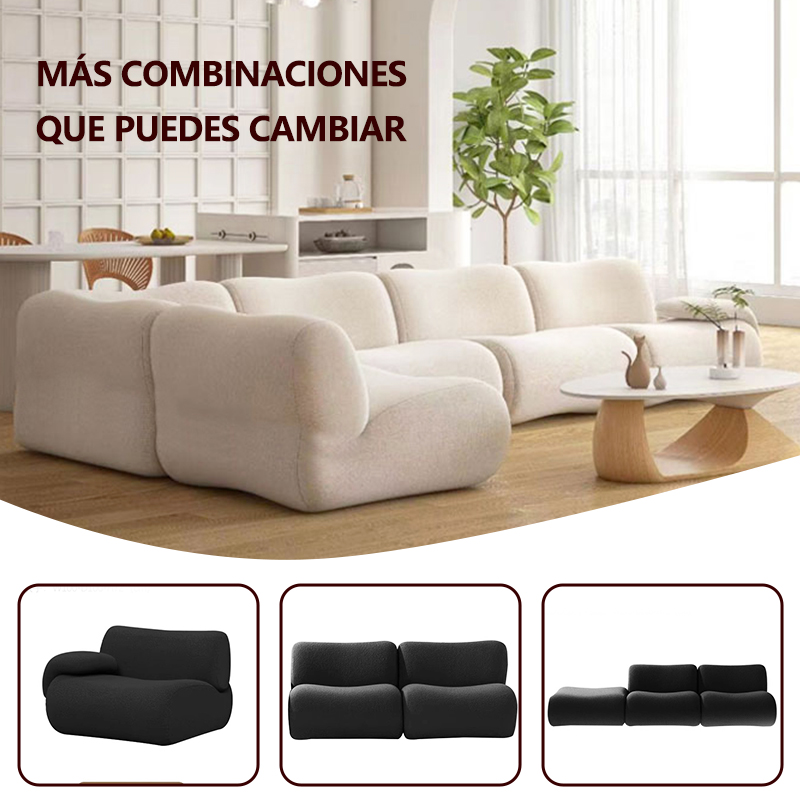
A common misconception is that compressed packaging may compromise the comfort or durability of a sofa. However, technological advancements in materials and design have made this concern largely obsolete.
Modern high-resilience and memory foams are engineered to endure deep vacuum compression. They rapidly expand after unpacking and retain their shape and support for years. Independent testing and customer feedback confirm long-term comfort.
Foldable or modular frames are reinforced with precision joints and fatigue-resistant materials. These structures undergo rigorous quality testing to ensure they remain stable and secure throughout the sofa’s lifespan. Components can often be individually replaced—enhancing durability.
Specialized upholstery fabrics used in compressed sofas are selected for stretchability, wrinkle resistance, and durability. Many models also feature removable, washable covers, extending product life and ease of care.
Modular sofas allow users to reconfigure layouts, add extra seating, or adjust arm and backrest positions. This flexibility provides a level of personalization that traditional sofas typically can’t offer.
In short, compressed sofas not only preserve comfort and build quality—they often outperform traditional sofas in adaptability, longevity, and value.
The adoption of compressed sofas is accelerating across key consumer and industry segments, driven by shifting lifestyles and evolving market demands:
Urban Living: Space-constrained city apartments and narrow access points call for compact, easily transportable furniture.
E-commerce Growth: Online furniture sales continue to rise, favoring compact packaging that reduces shipping damage and delivery costs.
Mobility and Flexibility: Younger, mobile consumers—such as students, renters, and frequent movers—seek modular, easy-to-assemble furniture.
Sustainability Awareness: Eco-conscious buyers are increasingly choosing products with lower carbon footprints and recyclable materials.
These converging factors are fueling global demand for compressed sofas, as reflected in the growing customer base of kingsenfoam.com and other innovation-forward manufacturers.
| Aspect | Traditional Sofa Packaging | Compressed Sofa Packaging |
|---|---|---|
| Volume Efficiency | Bulky, non-compressible | Up to 85–90% volume reduction via vacuum compression |
| Shipping Costs | High due to size and handling complexity | Significantly lower with compact, efficient packaging |
| Storage & Warehousing | Requires large warehouse footprint | Minimal space needed, improving inventory turnover |
| Assembly Ease | Delivered mostly assembled | Requires self-assembly, typically simple and well-guided |
| Material Usage | Heavy wood/metal frames; thick, rigid foam | Lightweight modular frames; engineered high-resilience foam |
| Environmental Impact | Higher emissions from less efficient logistics | Reduced carbon footprint and packaging waste |
| Customer Flexibility | Fixed configurations | Modular, reconfigurable layouts |
| Durability | Sturdy but less adaptable | High durability with foldable, tested joint systems |
| Small-Space Suitability | Less suitable for tight, urban spaces | Ideal for compact living and narrow delivery access |
| Price Point | Higher due to material and freight costs | More competitive due to logistics and manufacturing efficiency |
As a leading manufacturer in the compressed sofa industry, kingsenfoam.com sets the benchmark by combining cutting-edge factory automation, sustainable sourcing, and consumer-driven product development.
Advanced Manufacturing: Robotic foam cutting, automated stitching, and precision frame assembly ensure product consistency and scale.
Sustainable Material Commitment: Use of recycled foams, water-based adhesives, and biodegradable packaging aligns with global eco-standards.
User-Focused Modular Design: Sofas are engineered for easy assembly, flexible configurations, and long-term adaptability.
Global Logistics Optimization: Compression packaging maximizes international container efficiency, reducing shipping time and cost.
Comprehensive Customer Support: From detailed printed guides to online tutorials and responsive after-sales service, customer satisfaction is a core focus.
Through these integrated practices, kingsenfoam.com leads the evolution of modern furniture—delivering comfort, convenience, and sustainability for the next generation of living spaces.
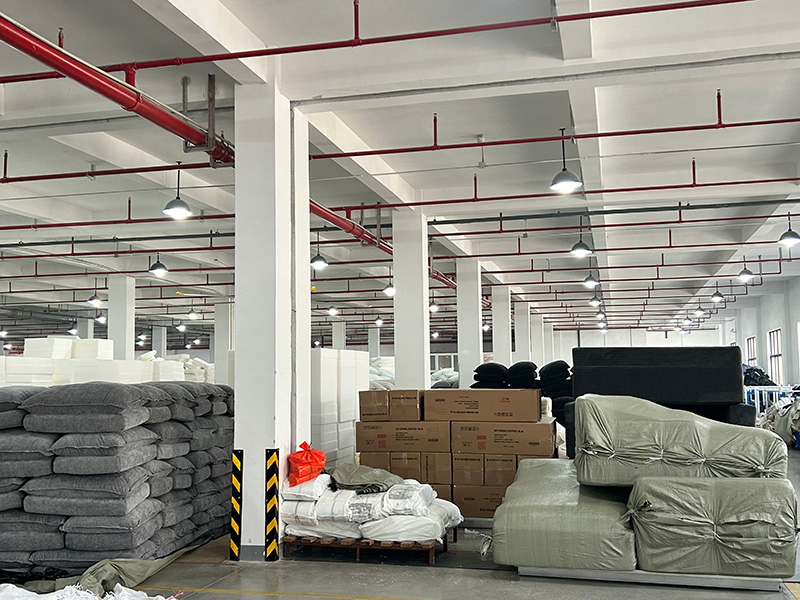
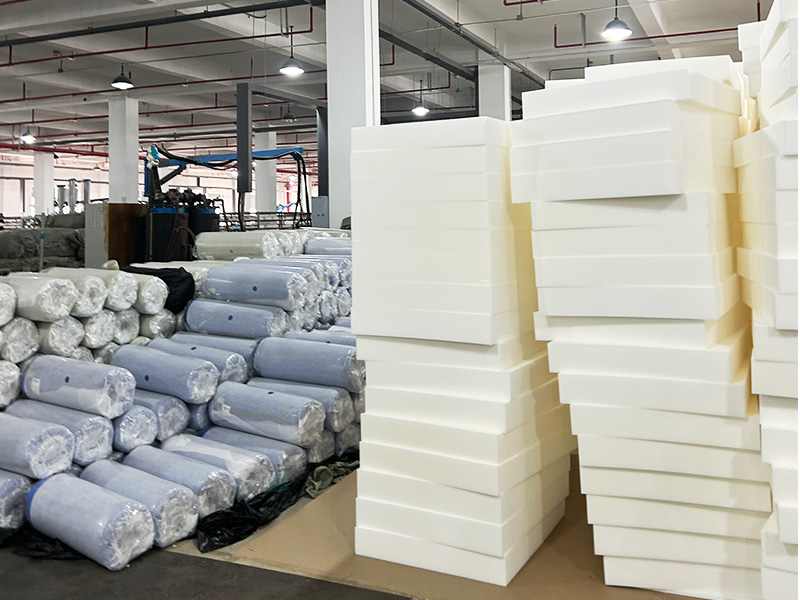
Compression Sofas China Source Factory - KINGSEN Foam
KINGSEN is a professional manufacturer with over 20 years of experience in designing and producing high density foam products and compression sofas. the main prodcuts include: Modular Sectional Sofas, Sofa Beds, Bean Bag, Kids Couch & Climbing Play .etc. We supply full custom service, including developing OEM & ODM projects. all products can be customized by material, size, color, logo, and more. Our company owns 25000m2 factory area and more than 200 sets of advanced manufacturing equipments, Perfect and rigorous QC system. Also, we have passed the ISO9001: 2015, BSCI, IAF Quality Management System Certification. We look forward to your visit and the opportunity to build a successful partnership together.
